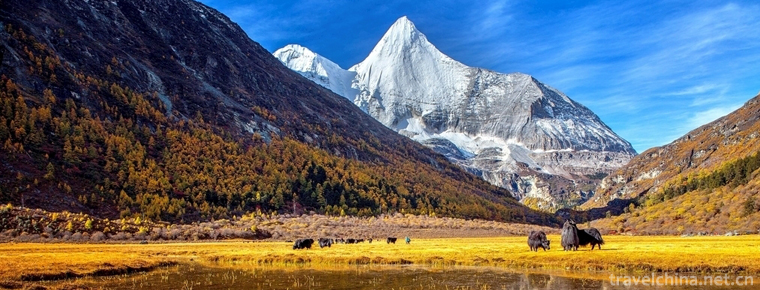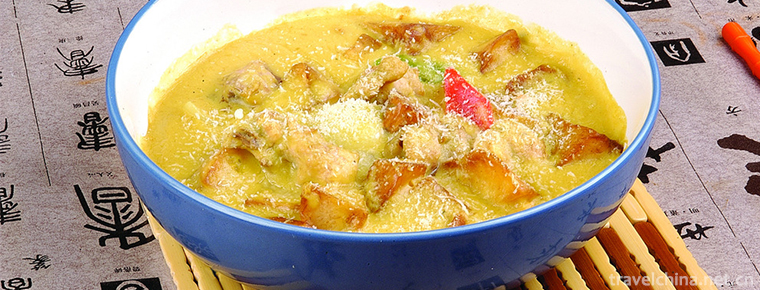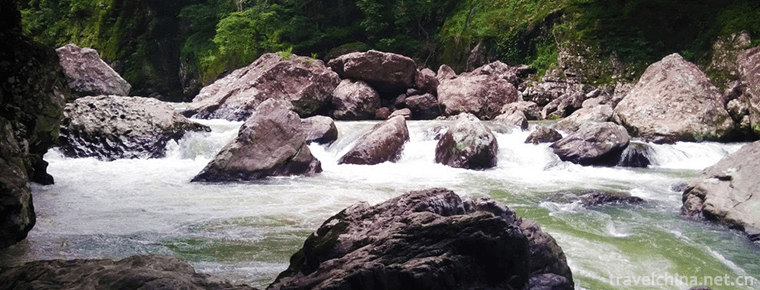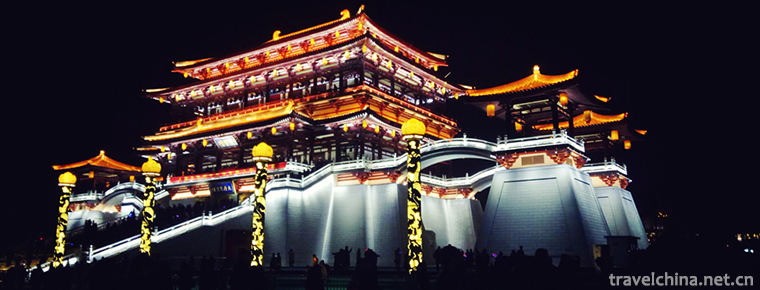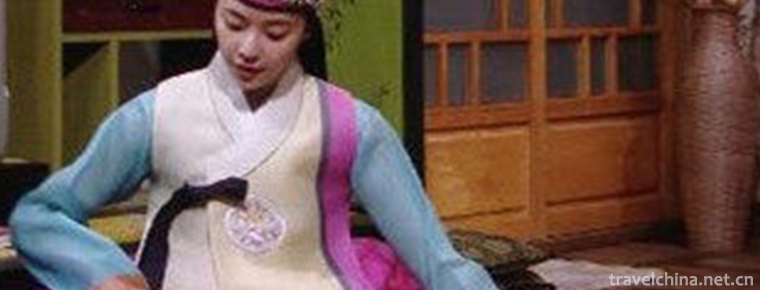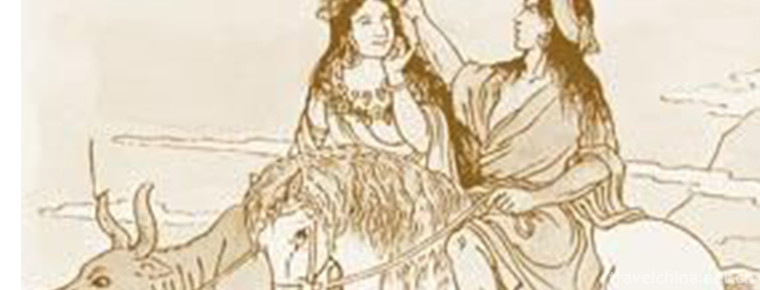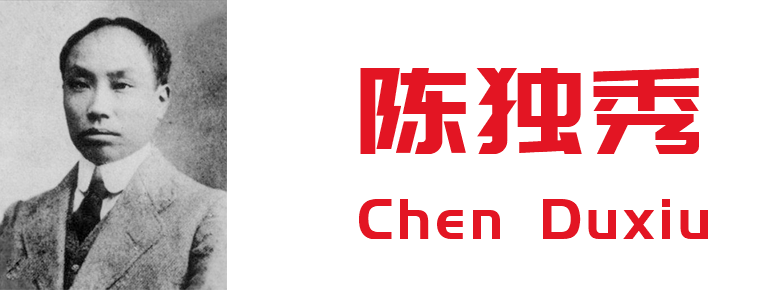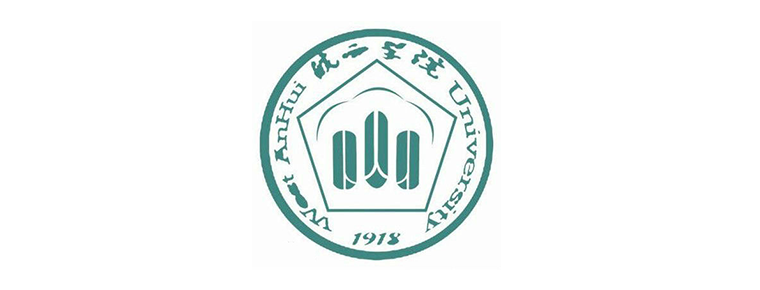Henan Opera
Henan Opera
Henan Opera, originating in the Central Plains (Henan), is one of the five major Chinese operas and the largest local opera in China. Contemporary Henan Opera has followed Henan Satellite TV, Henan Henan Theatre, Taiwan Henan Opera Troupe and other performing groups through many countries in the world, such as Australia, Italy, France, Canada, Venezuela, New Zealand, Germany, Britain, the United States and other countries to perform, praised by Westerners as "Oriental Aria".
Henan Opera is developed on the basis of Henan Bangzi's continuous inheritance, reform and innovation. After the founding of the People's Republic of China, Henan Opera was called Henan Opera for short.
Henan Opera is famous for its rhythmic singing, moderate restraint, smooth performance, clear pronunciation, mellow charm, vivid, flesh and blood, and good expression of the inner feelings of the characters. It is widely welcomed by people from all walks of life with its high artistry. Henan Bangzi was named early because of its music accompaniment beating with jujube bangzi.
According to the statistics of the Ministry of Culture, except Henan Province, there are professional Henan Opera Troupes in Hubei, Anhui, Jiangsu, Shandong, Hebei, Beijing, Shanxi, Shaanxi, Sichuan, Gansu, Qinghai, Xinjiang and Taiwan. There are more than 163 state-owned professional theatre troupes, 2239 private theatre troupes and more than 100,000 employees.
A Brief History of Plays
Henan Opera is the largest local opera in China, ranking first in all local operas in the country. In 2006, the number of state-owned professional Henan opera groups was 163, which was the largest number of professional opera groups and opera practitioners in the country, and became the top three in Chinese opera.
Henan Opera used to be called "Henan Bangzi" and "Henan High-pitched". Because early actors sang in their native voice, they used falsetto turn up the tail tape when starting and closing the tune, which was also called "Henan Chan". The name of "Henan Opera" first refers to all kinds of Henan operas.
Historical Origin
In 1924, Wang Yicheng published an article "General Theory of Henan Opera" in the Beijing Newspaper Supplement "Drama Weekly", in which Henan Opera is the collective name for all kinds of Henan Opera.
In the autumn of 1947, the folk newspapers in Luoyang, Kaifeng, Lanzhou and Xi'an used this term to refer specifically to Henan Bangzi.
At the end of 1947, Li Zhan, an educator of Henan Opera, formed the first Henan Opera troupe in Gansu Province, the New Guangyu Opera Troupe.
In 1948, the first school in the history of Henan Opera, "Private New Guangyu Opera School" was founded, which was the first organization to use the name of "Henan Opera".
In 1950, the Ministry of Culture of the Military and Political Committee of the Central South Region sent people to Zhengzhou to recruit a group of Henan Bangzi actors to Wuhan to perform in Wuhan as the "Mass Henan Bangzi Theatre Troupe" led by Chen Suzhen, Bangzi King, Wang Kuiyuan and Huang Zhongxiang. After the performance, Deng Zihui, vice chairman of the Central South Military and Political Council, met with the actors concerned. When talking about Henan Bangzi, Deng Zihui said: "Henan Bangzi is a small name, Henan is a short name for Henan Province, I think it is more appropriate to choose a big name for Henan Opera." In August 1950, Chen Suzhen and Wang Kuiyuan led the troupe to tour Henan and Hebei provinces and named Henan Bangzi as Henan Opera. Henan Bangzi was formally replaced by Henan Bangzi by the term "Henan Opera".
Before the Qing Dynasty
Henan Opera originated in the middle and late Ming Dynasty. It was developed on the basis of the popular fashion decrees (folk songs, minors) in Henan Province, and absorbed the singing arts of Northern Quxiansuo, Qin Opera and Puzhou Bangzi. With the in-depth study and a large number of data confirming, especially in the process of compiling Henan Volume of Chinese Opera Records, experts from various fields conducted extensive investigation and demonstration, and reached the conclusion that the earliest birthplace of Henan Opera was Kaifeng, the ancient capital and surrounding counties. The Song Dynasty chronicle Tokyo Menghualu clearly records that there were Sangjia tiles, Beiwa tiles and Ciriwa tiles in Kaifeng, Tokyo, in the Northern Song Dynasty. Goulan tiles were scattered throughout the city, and a Goulan shed could accommodate thousands of audiences. At that time, a large-scale Zaju opera "Mulian Save Mother" had been performed in Kaifeng.
Qing Dynasty
During the reign of Qianlong in Qing Dynasty (1736-1795), Bangzi Opera was popular in Henan Province. According to the inscriptions at that time, the Ming Palace was the place of prayer banquet for all classes of opera performers at that time. It has been annihilated for generations, and I don't know when it was created. According to the records of Qilu Lantern written by Li Luyuan in Qing Dynasty in the forty-second year of Qianlong (1777) and Qixian Chronicle in the fifty-third year of Qianlong (1788), Bangzi Opera was prevalent in Kaifeng and Qixian areas at that time, and had performed in a joint class with Luo Opera and Volume Opera, known as "Bangluo Volume".
During the Daoguang period (1821-1850), "the riverbank burst, the temple collapsed and the tiles did not exist." It can be seen that before Daoguang, Bangzi Opera existed in Henan Province.
After the formation of Henan Opera, due to the different dialects of pronunciation, various schools of singing with distinctive features have been formed in the process of spreading in different places: the fengqiu-centered singing method is called "Xiangfu Tune"; the Shangqiu-centered singing method is called "Eastern Henan Tune" or "Eastern Road Tune"; and the Luoyang-centered singing method is called "Western Henan Tune" or "Western Fu". The singing method spread in the Shahe River Basin in southeastern Henan Province is called "Shahe Diao", also known as the local bang.
According to the memories of some old artists in the 20th century, when they studied art around 1912, they heard the master talk about the "ten places" in Henan, namely Xiangfu (now Kaifeng), Qixian, Chen Liu (now Kaifeng), Weishi, Zhongmou, Tongxu, Yifeng, Lanfeng (now merged into Lankao), Fengqiu, Yangwu (now merged into Yuanyang) and "eight places outside". That is Huaiyang, Xihua, Shangshui, Xiangcheng, Shenqiu, Taikang, Fugou, Luyi. According to artists, the earliest imparters of Henan Bangzi are Jiangmen and Xumen. Jiangmen has held science classes in Zhuxian Town, south of Kaifeng City, and Xumen in Qinghe Jicun, Fengqiu County. The old three classes in Kaifeng, namely Yicheng, Gongyi and Gongxing classes, and Tianxing classes in Qingheji, all experienced the Ming and Qing dynasties.
In the Five Years of the Republic of China (Feb. 15, 1916), the Hesheng Daily published: "The class was formed in Inner Mongolia by the General Civil Service of Kaifeng County in the Jianqing Dynasty. Over the years, the children of pear orchards have been singing everywhere and enjoyed a great reputation."
At the end of the Qing Dynasty and the beginning of the Republic of China, Tianxing Class, originally run by Fengqiu, had a long history. Many famous Henan opera actors came from this class. Famous actors Li Jianyun, Yan Caiyun, Lin Daiyun, Shi Qianyun and Jia Biyun are also known as the Five Qiandan Dans. Other major actors sometimes Dengke, Zhang Zhilin, Nie Erni, Kong Xianyu, Li Yuxian, Zhang Tinghua, Li Fakui and so on.
the Republic of China era
After the Revolution of 1911, Henan Bangzi more entered the city to perform. Kaifeng's more famous tea clubs, such as Zhixiang Tea Club, Puqing Tea Club, Chenghuai Tea Club, Qing Tea Club, Donghuo Temple Tea Club and Tongle Tea Club, all rushed to invite Henan Ziban Club, Yicheng Class, Tianxing Class, Communist Class and Tongle Tea Club to participate in the performance. After Henan Opera entered the tea house, it competed with the Erhuang Opera (Peking Opera), which had already entered the tea house.
In the Five Years of the Republic of China (December 29, 1916), Songyue Daily published: "Bai Province spring opera has repeatedly dropped out, but it lasts a long time." In addition to Kaifeng, Zhengzhou, Luoyang, Xinyang, Shangqiu and other places have also appeared to perform Henan Bangzi tea clubs, theatres, and by the local people's warm welcome, cheers, continuous.
From the late 1920s to the early 1930s, Kaifeng Xiangguo Temple successively established four theaters: Yongan, Tongle, Yongle and the Nationality. Henan Opera actors from all over the country gathered in Kaifeng and were widely welcomed.
In the fifteen years of the Republic of China (1926), Yicheng Ban established the Yongan Stage in the Fire Temple of Xiangguo Temple in Kaifeng. The stage organization and management is divided into front, back stage and front stage. It is mainly responsible for various chores in the theatre, such as ticket sales, audience reception and tea supply. Backstage is mainly responsible for performing affairs, such as determining the repertoire, assigning roles, suitcases and props.
In the 16th year of the Republic of China (1927), Feng Yuxiang was in charge of Henan Province. Henan Recreation Training Course was set up by Henan Education Department in Kaifeng to examine and edit plays. Hundreds of actors were educated in "Gaotai Education" and "Serving the Society", which was called "the first voice of Henan Bangju Reform" by famous experts.
In the seventeenth year of the Republic of China (1928), Henan Provincial Department of Education set up the Opera Review Conference and issued various articles of association. A group of intellectuals, such as Fan Chiting, Wang Zhennan, Zou Shaohe, Jiang Wenquan and Zhang Jietao, intervened to make Henan Bangzi stage a new look.
In the nineteenth year of the Republic of China (1930), the five major schools of Henan Opera went from deer to Kaifeng, forming a great integration of singing tunes, especially the participation of intellectuals reformers. Henan Opera absorbed the strengths of various schools to learn from each other and competed with each other, thus creating a prosperous period of Henan Opera. After this integration, the voice of Henan Opera immediately affected all parts of the country. This also laid a solid foundation for the great development of Henan Opera in 1950.
In the 23 years of the Republic of China (1934), Fan Chiting founded the Yusheng Theatre in Kaifeng.
In the twenty-four years of the Republic of China (1935), Fan Chiting, director of the Promotion Department of Henan Provincial Education Department, set up the Yusheng Theatre Society in Kaifeng. He reformed the colloquialism, words, tone, workmanship, make-up and costume of the drama, which had a far-reaching impact on the development of Henan Opera. Because of the involvement of administrative forces, the dramatic reform has formed a certain momentum; inserting the ideas of the times has improved the literary taste of the repertoire and lyrics, brought into play the comprehensive advantages of singing, reciting and dancing, reformed the old songs, merged the tunes and created a new tune. Fan also changed Tongle Theater to Yusheng Theater, inviting the empress Chen Suzhen and Zhao Yiting of Yusheng Opera to form a powerful performing group to sell tickets in Yusheng Theater. The adapted Yusheng Opera is very popular. Henan People's Daily, published in May 4, 1935, in the twenty-fourth year of the Republic of China, contains "seats open every night".
the period of the war of Resistance Against Japan
In the twenty-sixth year of the Republic of China (May 1937), Fan Chiting accompanied Chen Suzhen from Kaifeng to Peiping to study opera. In the twenty-six years of the Republic of China (July 1937), the Lugouqiao incident broke out. Fan Chiting and Chen Suzhen set out to return to Henan, opening the curtain of the first anti-Japanese war Fundraising Charity Show in Henan literary and artistic circles. In Shangqiu, the performance was renamed Lion Roar Theatre Troupe, and several anti-Japanese dramas, such as Di Sha Xue, Li Li Li Jian and Ke Ji Rong Gui, were compiled. The performance of propaganda and fund-raising to support the anti-Japanese fighters is called a model of zealous salvation of the nation.
In the twenty-seventh year of the Republic of China (1938), Kaifeng was occupied, the Kuomintang army exploded the Garden Estuary of the Yellow River, flooded the Yellow River and displaced the people. Many groups of Henan Opera entered Xi'an. In the 29 years of the Republic of China (1940), Lion Roar Theatre moved to Xi'an.
during the civil war
In the thirty-seventh year of the Republic of China (1948), Chang Xiangyu founded Xiangyu Opera Club in Xi'an.
In the thirty-seventh year of the Republic of China (1948), Cui Lantian founded the Languang Opera Society in Xi'an and the Henan Disaster Children's Theatre Society founded by Sun Laoqi. Xi'an became an important position for the performance of Henan Opera. Some actors have made their first performances in Anhui, such as Maolanhua, Ma Jinfeng and Yan Lipin. During the War of Resistance Against Japan, actors of all genres moved everywhere in order to make a living. They broke the door view and performed in groups with each other, thus enabling more exchanges among different genres of Henan Opera.
In the thirty-eighth year of the Republic of China (April 24, 1949), the Chinese People's Liberation Army (PLA) marched into Nanjing, and nearly 40,000 officers and soldiers, led by General Huang Jie, withdrew to Fuguo Island, Vietnam. Most of these officers and soldiers were from Soviet, Shandong, Anhui and Henan provinces. One of the officers in the PLA was Li Jiutao, whose wife Zhang Xiuyun was a red-horn singing Henan Opera. Zhang Xiuyun was called upon to form a theatre troupe (later named "Zhongzhou Henan Opera Troupe") to perform specially for officers and soldiers to comfort their homeland.
After liberation
Since the founding of the People's Republic of China, professional Henan Opera performing groups have been established in mainland China, and a large number of new repertoires and plays have appeared. Henan Bangzi was officially named "Henan Opera" by the government. The state produced a large number of stage art documentaries, movies and television films, and kept records of the performing arts of many artists and troupes.
In order to show its cultural orthodoxy, the Kuomintang of China put forward the idea of "promoting the culture of the Central Plains". Henan Opera, as a typical representative of the culture of the Central Plains, has been vigorously promoted in Taiwan. In 1950, the first batch of Henan Opera was performed in Fengshan, Kaohsiung, by the army's political, war and artistic system. During the reign of Lee Teng-hui and Chen Shui-bian in Taiwan, they vigorously promoted local culture, which affected the environment of Taiwan's Henan Opera. After Ma Ying-jeou came to power, with the warming of cross-strait relations, cultural exchanges between Henan and Taiwan deepened, and the influence of Henan Opera in Taiwan was further highlighted. The Taiwan Henan Opera Troupe is a state-level public Henan Opera performing group affiliated to the National Headquarters of Traditional Arts of Taiwan, the Cultural Department of Taiwan.
In the mid-1950s, many provinces, municipalities and autonomous regions throughout the country established professional performance groups of Henan Opera, making Henan Opera one of the most widely spread operas in China. Director Yang Lanchun and composer Wang Jixiao pioneered a modern way of Henan opera, and created the Anti-tone singing represented by Chaoyanggou, which is called "modern drama genre" and is an opera in Henan opera. Chaoyanggou has become a classic that can not be reproduced. However, a large number of modern Henan Opera operas have also caused many people inside and outside the industry to worry that because of the alienation and loss of fine traditional singing tones in modern operas, as well as the serious lack of material selection aesthetics and artistic design of lyrics, the elegance and rhyme of Henan Opera can not be reflected in modern Henan Opera operas, resulting in a serious decline in the grade and quality of Henan Opera. And it has also created a situation in which tens of thousands of people speak in one voice.
In 1951, the Taiwan Air Force established an amateur Henan Opera Troupe (Dapeng Henan Opera Troupe) with Maolanhua as its core. The amateur Henan Opera Troupe opened the first Henan Opera class in Taiwan's history: the students'class of the Air Force Amateur Henan Opera Troupe in Taiwan (the students' class of the Dapeng Henan Opera Troupe), which enrolled 8 students in the first stage, 4 students in the second stage and 8 students in the third stage. The army in Taiwan includes the Huanglong Henan Opera Team, the Huben Henan Opera Team and the Jaguar Henan Opera Team.
In 1953, Huang Jie's troops moved to Taiwan and were designated as Taiwan Marines stationed in Kaohsiung. After moving to Taiwan, "Zhongzhou Henan Opera Troupe" was reorganized into "Pegasus Henan Opera Troupe" with the support of Zhou Yuhuan, then Marine Corps Commander, and his wife's concern and then Chief of Staff Yu Haozhang. One day in early April of the same year, Chiang Kai-shek and his wife, Song Meiling, watched a Henan opera at the Jishou Hall of Yangmingshan Revolutionary Practice Research Institute. During the performance, Chiang Kai-shek claimed to be good. After the curtain call, he took off his military cap and waved to the stage frequently. He told the government officials present that Henan Opera was the most educated type of drama.
In March 1956, Henan Henan Opera Theatre was set up to inherit and carry forward the excellent tradition of Chinese traditional opera art and systematically and systematically cultivate the new force of Chinese traditional opera art. Henan Opera School (now Central Plains Academy of Culture and Art) with Henan Opera as its major was officially established. On September 8, the Henan Cultural Bureau put forward the proposal. It excavated and sorted out the traditional operas in the whole province, and decided to hold the first Henan opera performance conference at the end of the year. At the observing conference held in December, 23 kinds of operas participated in the performance. Henan operas accounted for almost half of the performances.
In 1957, with the continuous expansion of the Anti-Rightist struggle, a number of Henan opera workers throughout the country, such as Chen Suzhen and Yan Lipin, were classified as rightists and criticized. Lu Guangyu Opera Team was formed in 1962. Taiwan's Marine Corps has the Pegasus Henan Opera Team and the Fourth and Fourth Henan Opera Troupe.
The Pegasus Henan Opera Team Student Class of the Taiwan Marine Corps, which was established in 1959, is the longest-standing Henan Opera Class in Taiwan's history (later changed to the Henan Opera Department of the National Guangzhou Opera Experimental School). A total of nine students were trained before its suspension.
The third class of Henan Opera in Taiwan is a class of students of the Army Guangyu Opera Team of Taiwan, which has been suspended with the opera team before graduates have been trained.
From 1940 to 1960, Henan Opera began to spread more widely throughout the country. In the 1940s, Henan Opera went westward to Shaanxi, Shanxi, Gansu, Qinghai, Xinjiang and other places. In the 1950s, it went south to Hubei, Sichuan, Guizhou, Taiwan and north to Tianjin, Liaoning, Jilin and Heilongjiang provinces.
In 1965, when the Pegasus Henan Opera Team was to be decommissioned, Jiang Jingguo ordered the preservation of the Pegasus Henan Opera Team after listening to the views of the officers of the Navy and Marine Corps in Kaohsiung. Jiang Jingguo also tried to solve the problem of funding for the Pegasus Henan Opera Team. Since 1965, Taiwan's military political and war system began to disband the Henan Opera teams of various military categories one by one.
In 1966, the Taiwan Air Force Amateur Henan Opera Troupe was disbanded in Pingtung.
Cultural Revolution
In 1966, in the slogan of the Cultural Revolution "breaking the four old", like other opera troupes, a large number of traditional costumes, props and opera materials were regarded as feudal remnants and burned down. Many other Henan opera performers were criticized, and Chang Xiangyu was deprived of the right to perform. Henan Daily criticized her as a "grand theatre hegemony". At the same time, some Henan opera troupes, including Henan Henan Theatre, have been cancelled or merged. Under the situation of popularizing model operas in the whole country, Henan opera workers have done a lot of work to transplant model operas for Henan Opera, and some performers who are not suitable for model operas have been forced to change their professions.
On April 2, 1969, at the Party of the 10th National Congress of the Chinese Kuomintang, Chiang Kai-shek pointed out that he wanted to watch Henan Opera, and after watching the new historical play Yang Jinhua, he praised Henan Opera for its significance of teaching loyalty and filial piety. During the period of the Cultural Revolution from 1966 to 1972, there were hardly any new works in Henan Opera except for the transplantation of model plays.
In 1971, Lu Guangyu Opera Team was disbanded. Only Jiang Jingguo, then head of Taiwan's national defense department, ordered special care in 1965 (Zhang Xiuyun, then deputy captain, went over to Xiao Jiang and after Xiao Jiang's appointment, Zhang retired in 1968).
In 1973, Taiwan's last private Henan Opera Troupe, the Fenglin Henan Opera Troupe, was disbanded (before the disbandment of a private Jane Henan Opera Troupe), and since then there has been only one Henan Opera Troupe of the public Pegasus Henan Opera Troupe.
In 1974, the Henan Opera film Qin Liangyu, filmed by the Chinese Film Studio, was presented to Chiang Kai-shek with great appreciation and was ordered to be appreciated by the three armies.
Influenced by his father, Jiang Jingguo also had a special preference for Henan Opera. During his tenure as Vice-President of Taiwan's administrative department, he had seen many Henan Opera starring Ms. Wang Hailing and recommended it to Yan Jiagan and He Yingqin.
In 1978, President Jiang Jingguo visited the 14th Taiwan Army Literature and Art Gold Award and awarded a prize of NT$40,000 to the Pegasus Henan Opera Team.
After the Cultural Revolution, the traditional Henan Opera repertoire came back to the stage. From the late 1970s to the 1980s, the creation of Henan Opera had a new ideological surge. Along with the footsteps of "scar literature", some new works appeared in Henan Opera.
In 1980, Henan Opera School Reporting and Performing was held, gradually forming major Henan Opera genres, and many modern plays and new historical plays describing real life appeared. This performance is of great significance. It established Chen, Chang, Cui, Ma, Yan, Li Sizhong and other Shengjing genres in terms of art and film power. 。
By 1983, the shackles of creation in the period of the Cultural Revolution had been broken, and new explorations and experiments had been carried out in the new plays of Henan Opera in terms of content, form of expression, artistic practice and theoretical research.
Reform and Opening-up
In 1990, Pegasus was invited to perform in the United States, Germany, Austria, Italy, Britain and other countries, and to stand on the international stage with the art of Henan Opera.
In July 1990, a group of 40 people from Taipei Henan Opera Improvement Association performed in Pingdingshan City, Henan Province, opening the exchange of Henan Opera between the two sides. Since then, Taiwanese Henan opera performers have been invited to perform in mainland China for many times. This period is called "one-way communication period".
In 1993, the exchange of Henan Opera between the two sides of the Taiwan Strait entered a period of two-way exchange from one-way exchange.
In 1994, the column "Pear Garden Spring" launched by Henan TV Station was presented to the audience in the form of a race, and was widely praised. The column group of "Pear Garden Spring" performed in mainland China, Taiwan and abroad, which further expanded the influence of Henan Opera.
In 1996, the Taiwan military decided not to run any opera troupes. On January 1st, the Pegasus Henan Opera Troupe moved from the Marine Corps of Taiwan to the Education Department of Taiwan and changed into the Henan Opera Troupe of the National Light Opera Troupe, which is now the state-run Taiwan Henan Opera Troupe.
In April 1998, 40 members of Zhengzhou Henan Opera Troupe, led by Hu Meiling, a state-level actor, went to Taiwan for the first time in a group.
Twenty-first Century
In 2000, the Taiwan Henan Opera Troupe first created a cross-cultural play of Henan Opera with the famous Italian opera Princess Durando, which caused unprecedented sensation.
After 2001, the cross-strait exchange of Henan Opera entered a period of cooperation. Henan artists went to Taiwan to rehearse a large number of new Henan operas.
On March 6, 2008, Taiwan Henan Opera Troupe broke away from Guoguang Opera Troupe and became its counterpart.
In 2009, Shakespeare's famous play "The Merchant of Venice" was re-transplanted as the Henan Opera version of "Restriction". These two new cross-cultural works opened a new way for the development of modernization and internationalization of Henan Opera in Taiwan, and their performances were highly praised.
In 2009, the Chinese Academy of Opera enrolled 24 students from all over the country for the first time, forming the undergraduate class of Henan Opera in 2009, and Henan Opera became a major of University for the first time.
From September 18 to September 20, 2010, a group of 10 people from Henan Provincial Culture Department went to Singapore to attend the 2010 Singaporean Chinese Culture Festival. Together with Taiwan Henan Opera Troupe and Singapore Opera Academy, the "Asian Henan Opera Forum" was held, which became the first transnational Henan Opera Forum in the history of Henan Opera development.
In 2011, the Chinese Henan Opera Festival, co-sponsored by the Ministry of Culture, Henan Cultural Department, Zhengzhou Municipal Government and the Chinese Henan Opera Culture Promotion Association, was held with Henan Opera Troupes from Hebei, Shandong, Shanxi, Shaanxi, Anhui, Hubei, Jiangsu and Taiwan. The opening ceremony was held at the Grand Theater of Henan Art Center. Two masters, Peony Ma Jinfeng of Luoyang and Queen Zhang Xiuyun of Taiwan Henan Opera, were awarded the "Henan Opera Lifelong Achievement Award" at the 2nd China Henan Opera Festival.
On May 20, 2012, after the establishment of the Taiwan Ministry of Culture, the Taiwan Henan Opera Troupe was affiliated to the National Traditional Art Center of the Taiwan Ministry of Culture. The performance style of Taiwan Henan Opera Troupe takes "combining modernization and localization, showing inclusiveness and innovation" as its development symbol, emphasizing the localization of Henan Opera and deeply integrating into the connotation of Taiwan. At the same time, the concept of cross-cultural or cross-border creation has become Taiwan's creative trend in the 21st century.
On September 11, 2015, the second Henan Henan Theatre Troupe, led by Li Shujian, Vice-Chairman of the Chinese Drama Association and President of Henan Henan Theatre, presented a new large-scale patriotic Henan Opera "Suwu Shepherd" at the International Art Festival of the Silk Road in Xi'an.
Artistic Characteristics
Music for voices in a Chinese Opera
Henan Opera has formed an artistic school with regional characteristics in music due to the differences of voice in different places. At the end of Qing Dynasty and the beginning of the Republic of China, Henan Opera in Luoyang and other places mostly used the lower five tones, while those in Kaifeng and other places mostly used the upper five tones, forming a sharp contrast. In order to distinguish, Henan opera artists call the tunes of Luoyang and other places the Western Henan Tune (also known as Xifu Tune), and the tunes of Fengqiu area the Eastern Henan Tune (also known as Xiangfu Tune). After the founding of New China, experts of Henan Opera subdivided the tune of Eastern Henan into Xiangfu tune, Eastern Henan tune and Shahe tune. This Division has been widely recognized, namely, the Xiangfu tune centered on fengqiu, the Eastern Henan tune centered on Shangqiu, the Western Henan tune centered on Luoyang, and the Shahe tune, also known as the "local bang", which is popular in the Shahe area of southeastern Henan. Among them, Xiangfu tune, Shahe tune and Eastern Henan tune mostly use the upper five tones, while Western Henan tune mostly uses the lower five tones. Now Xiangfu tune and Shahe tune have declined, and Eastern Henan tune and Western Henan tune show tenacious vitality.
During the prosperous period of Henan Opera, the professional performers of Henan Opera were not only Han, but also Hui, Manchu, Korean, Mongolian, Alpine and Jewish minorities. Henan Opera is rooted in the Central Plains, vigorous and vigorous grand spirit, the aesthetic effect of both elegance and vulgarity, the high-spirited, concise and lively singing tunes, the ancient and modern performance style of both old and young, humorous, optimistic and upward language interest, not difficult and astringent, North and South easy to understand the Zhongzhou rhyme, simple and magnanimous culture. Style, reflecting reality, close to life, flesh and blood mass pattern, etc.
The art of Henan Opera is both ancient and modern. It combines rigidity and softness. It is open-minded and generous. It has the beauty of "neutralization". First of all, Henan Opera has a strong singing voice, magnificent atmosphere, moderate, passionate and unrestrained masculinity, with great emotional strength. Secondly, Yuju opera has a clear voice, articulation, natural nature, flesh and blood, and is good at expressing the inner feelings of the characters. Moreover, Henan Opera has a clear and strong rhythm, sharp contradictions and conflicts, the plot has a beginning and a end, and the tune is humorous and cheerful. Henan Opera is not only suitable for performing relaxed comedy, but also for performing grand scenes of emperors and generals. Henan Opera is very suitable for performing tragedy because of its euphemism and melancholy. Henan Opera generally arranges large-scale singing in key plots. The singing is fluent, rhythmic and challenging. Generally speaking, it is clear and easy to be heard by the audience.
Xiangfu Tune
Xiangfu tune, originating from Fengqiu, is the mother tune of Henan Opera. The standard Zhongzhou rhyme is the most authentic aria of Henan Opera. Men's voice is hyperactive, simple and mellow, while women's voice is solemn, graceful and beautiful. Xiangfu tune lyrics are easy to understand, mostly 7 or 10 words. The artistic proverb of "singing ten sentences of opera rather than one sentence of white" has spread to young people to use false voice, old people to use true voice, false voice, etc. Danjiao to use false voice, clowns to use real voice and false voice, pure and more use of knots, fresh and elegant style, melodious and melodious. Among the representatives, Chen Suzhen, Ma Shuangzhi, Li Jingjie, Yan Lipin, Sang Zhenjun, Zhang Xiuyun, Song Guiling, Wang Xiulan, Yao Shufang, Wang Jingxian, Tian Xiling, Zhang Shuiying and so on; Tang Xicheng is the oldest; Niu Decao is the ugly and happy.
Western Henan Dialect
The Western Henan Diao (Xifu Diao) originated in Luoyang. The voice is low, the words are clear, the words are in the ear, the real voice is often used for the pure and ugly life, and the real voice is depressed; it is suitable for the performance of pessimism, indignation, deep and solemn music. Among the representatives, there are Chang Xiangyu, Cui Lantian, Mao Lanhua, Su Lanfang, Tang Lanxiang, etc. in Danhang; Laosheng has three pictures for a week, Jia Baoxu, Wang Sui Dynasty; Wusheng has Wang Ershun, etc.
Eastern Henan Diao
The Eastern Henan Diao originated in Shangqiu. Generous and impassioned, bold and bold. Word-biting is heavy and strings are high. Female voice is more colorful, with bright, beautiful characteristics, the combination of true voice and false voice, male voice is rough and bold, mostly used alternately with false voice and true voice. Among the representatives, Laosheng has Tang Yucheng, Yang Qichao, Liu Xinmin, Liu Zhonghe, Suo Culture, Hong Xianli, Xie Qingjun, etc., Xiaosheng has Zhao Yiting, Huang Ruxiu, Wusheng has Li Guofan, etc., Danxing has Ma Jinfeng, Hua Guirong, Wang Runzhi, Si Fengying, Chen Yuying, Zhang Xiulan, Huang Aiju, Zhang Weihua, Dong Furong, etc. Li Sizhong and Wu Xin are equal.
Shahe regulation
Shahe Diao (local Bang) is lively and graceful, exciting and bright. It is suitable to express not only pleasant and comfortable mood, but also generous and vigorous atmosphere. Spreaded in Huaibei and Shahe River Basins, Anhui is called Bangzi Opera and Huaibei Bangzi. Among the representatives, Laosheng (red face) has Gu Xixuan, Xiaosheng has Liu Fayin, Zhang Sanwang, Wusheng has Cao Yanzhang, etc., Danxing has Liu Yumei, An Jinfeng, Xu Meilan and so on.
Business Classification
The role of Henan Opera is composed of "pure ugliness of birth and death". Generally speaking, they are Sisheng, Sidan and Sihualian. Theatre troupes are also organized in accordance with the structure of "four generations, four soldiers, four generals and four maids; eight scenes, two boxes of officials, plus four miscellaneous services".
Four generations are Laosheng (Xusheng, commonly known as Red Face, generally divided into Big Red Face and Erhong Face), Xiaosheng (early including Wusheng, Xiaosheng, Washeng; now separated), and Biansheng (Second Supplementary Student, that is, sweeping the edge of the old, generally as a secondary role, and gradually merged into the old business)
Sidan is Zhengdan (Qingyi), Xiaodan (including Huadan and Boudoir Dan), Lao Dan, Wudan (including Shuai Dan, Dao Ma Dan) and Caidan (ugly woman).
Sijing is Zhengjing (also known as Bronze Hammer, Black Head; commonly known as Big Flower Face), Vice-Jing (also known as shelf; commonly known as shelf flower face), Wujing (commonly known as Wuhua Face; including smashing flower face), Fujing (commonly known as wool flower face)
One ugly face is three colorful faces (ugly)
Actors generally have their own professional line of work, but some actors are versatile, working outside the line, and acting in other lines. In the early stage of Henan Opera, "Outer Eight Points" (Four Life and Four Faces) was the main drama, and Shengxing Opera played an important role. Wushu opera has many masterpieces such as "rope tray", "bucket suspension", "air restoration", "sea exploration", "Yuanbaoding", "big turning over" and so on. Danxing occupied a minor position in the era of "outer anise", but with the increasing number of actresses on stage, she gained a dominant position in Henan Opera.
Clothes & Accessories
The stage equipment of the early Henan Opera performance is very simple, often only with reed mat, foil block, a table and two chairs on the stage, can start. Personnel who beat gongs and bangles are also inspectors. After entering the city, there will be more fixed theatre, stage equipment will be improved. Yusheng Theatre has adopted some curtains and scenery, and Danjiao costume pays attention to "Lao Dan Qing, Zheng Dan Jun, Huadan style". Afterwards, influenced by the costumes of Peking Opera, the costumes of Peking Opera are basically the same as those of Peking Opera.
Makeup
Henan Opera "thick ink and heavy color" makeup, no matter what kind of role, they all use oil makeup, and painted very thick. The apricot is usually the eye of the apricot, and the eye line is soon picked up the ear root; the cherry mouth is so little. Raw angle paintings are different, and all kinds of facial makeup are various and vivid.
Perform
All walks of life in Henan Opera have their own key points of performance, such as gestures, such as "colorful face, red face, eyebrows, lips and chest". The key of short fighting in martial arts is "body like snake-shaped eyes, like electricity, boxing like meteors, like drills in legs; stable as heavy boats, like arrows, fierce, brave, urgent, fast, sitting, standing steadily like mountains", on the road of guns. There are "silk walking", "nine shots in a row", "thirteen shots", "nine noses", "eight poles", "single inversion" and so on. The key to the performance of Tsing Yi and Boudoir Dan is to "go on stage and stretch out your hand like a goose, turn your sleeves around your neck; float down and worship like a hug, and kneel down without baring your ankles", "talk without looking at people, walk without kicking skirts, men and women without holding hands, sit down and look at the skirts". The key to Caidan's performance is "peeping at people with oblique eyes, biting lips with words, twisting all over, walking and throwing sweat towels". Xiaodan's appearance style is "going out according to the temples, tucking in the collar with both hands, bending down and lifting embroidered shoes, and then dressing the corner". The key to Xiaosheng's performance is "clean, clean and flush". "Qing" is elegant, with clear words and elegant demeanor; "Jing" is clean and neat, just right; and "Chong" is brave and energetic.
Musical Instruments
The main musical instruments of the Henan Opera Orchestra are the big strings (octagonal yueqin, performers and suonas), the second strings (bamboo or wooden tung-covered tweeter banhu) and the three strings (plucked instruments). In the 1930s, Fan Chiting and Chen Suzhen introduced Banhu into the stage of Henan Opera and made some minor improvements. Since then, Banhu has become the main chord of Henan Opera. After the 1950s, erhu, pipa, bamboo flute, sheng, stuffy son and Cello were gradually added to the general literary arena. Some have increased the number of Hu dropping and zither dropping. There are also electronic organs, violins, brass pipes and woodwind instruments added to form a mixed Chinese and Western band.
There are three types of gongs and drums in the martial arts arena of Henan Opera. First, the opening gongs and drums are mainly composed of mixed officials, Mao Bian and Bao Laoyui. 2. The gongs and drums that coordinate the performance and set off the stage atmosphere. Most of them are the same as Peking Opera, but some of them are called differently. Commonly used are various forms of gongs, , , , , , and so on. 3. The gongs and drums in the aria have prominent features, such as windward, Huilong and inflexible nails. There are all kinds of running heads and a drop of oil in running boards. There are various kinds of non-plate head, and so on. The 28-board gongs and drums are the most abundant, and can be divided into single drum bar and double drum bar. In addition to the two kinds of hammers, [long gongs], single drum bars are commonly used in the category of , , and double drum bars are commonly used in the category of [five nail hammer], , , etc. With all kinds of gongs and drums in other affiliated slab singing tunes, there are no less than 100 kinds in total.
Current status of protection
On May 20, 2006, with the approval of the State Council, Henan Opera was listed in the first batch of national intangible cultural heritage list.
In December 2018, the Ministry of Education recognized Henan University Henan Opera Heritage Base as the first batch of excellent traditional Chinese cultural heritage bases in Colleges and universities across the country.

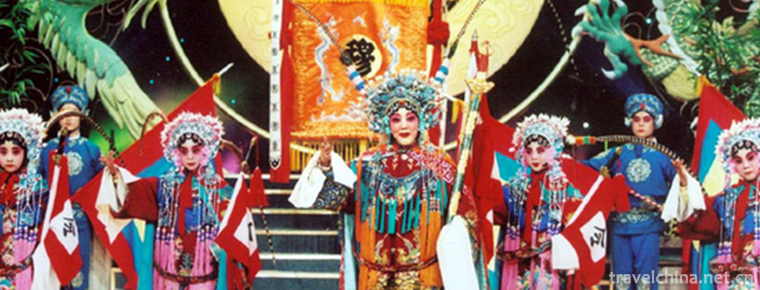
-
Daocheng County
Daocheng county is located in the southwestern edge of Sichuan Province, south of Ganzi. Located in the southeast of the Qinghai Tibet Plateau, the eastern side of Hengduan Mountains..
Views: 101 Time 2018-10-12 -
Portuguese chicken
The Portuguese chicken is one of the representative dishes in Macao. It's a Portuguese food from Africa and India. It's made of whole chicken.
Views: 237 Time 2018-11-14 -
Baishuiyang Yuanyangxi Tourist Area
Baishuiyang Mandarin Creek is located in Pingnan County, Ningde City, Fujian Province. It is 170 kilometers away from Fuzhou and 101 kilometers away from Ningde.
Views: 170 Time 2018-12-08 -
Dayan Pagoda Datang Furong Garden Scenic Area
The Furong Garden of the Tang Dynasty is located in Qujiang Development Zone in the south of Xi'an City, Shaanxi Province, on the southeast side of the Big Wild Goose Pagoda..
Views: 161 Time 2018-12-12 -
Gallequin Art
Jia Liqin is made by Jia Xiwang of Jia Liguo, who imitates Chinese Han Zheng. The shape is similar to that of Zheng, and it is also a string and a pillar. There are twenty-one strings in the current G.
Views: 172 Time 2019-04-30 -
Legend of the ancestors of Khitan
The legend of the ancestors of Qidan is a folk legend that is spread in Pingquan County, Hebei Province, China. According to legend, the ancestors of Qidan were born on the Futu River in Mayushan.
Views: 112 Time 2019-06-10 -
Chen Duxiu May Fourth leader
Chen Duxiu (October 9, 1879 -1942 May 27th), formerly known as "Qing Tong", the official name is "Sheng Sheng", "Zhong Fu", "Shi Shi". Anhui Huaining (now Anqin.
Views: 131 Time 2019-09-07 -
West Anhui University
West Anhui University (West Anhui University) was the 3 menstrual period of 2000. Ministry of Education Approved provincial comprehensive Undergraduate Colleges From the original West Anhui United Uni.
Views: 158 Time 2019-11-20 -
Nanchong City honor
"Three products" strategy demonstration city of consumer goods industry, charming city with Chinese characteristics, national garden city and excellent tourism city in China.
Views: 291 Time 2020-12-17 -
Meishan peoples life
In 2019, the per capita disposable income of urban residents is 36743 yuan, an increase of 9.0%. The per capita consumption expenditure of urban residents was 23554 yuan, an increase of 12.0%; the per capita disposable income of rural residents was 18177.
Views: 341 Time 2020-12-18 -
Guangan Airlines
There is no airport in Guang'an, but there are many airports around it. At the same time, Guang'an terminal building of Chongqing Jiangbei International Airport has been built in the urban area. Guang'an is 110 kilometers away from Chongqing Jian.
Views: 170 Time 2020-12-19 -
Biological resources in Dazhou
There are more than 400 species of vertebrates in Dazhou City, including 60 kinds of mammals, 230 kinds of birds, 14 kinds of reptiles, 10 kinds of amphibians and 85 kinds of fish. There are 52 species of national and provincial key protected wild an.
Views: 363 Time 2020-12-20
